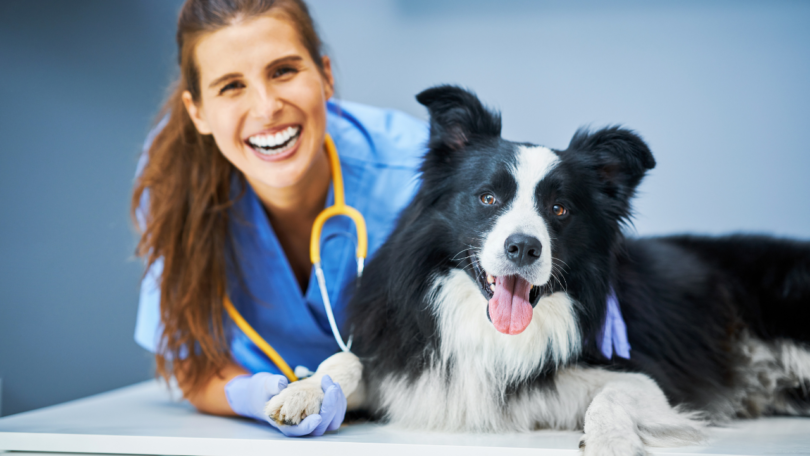If your pet is suffering from allergies, a veterinarian consultation is a crucial step in managing their symptoms and improving their quality of life. Proper preparation for this appointment can make a significant difference in the accuracy of the diagnosis and the effectiveness of the treatment plan. This comprehensive guide will walk you through everything you need to know to prepare for a veterinarian consultation focused on allergy management for your pet.
Understanding Pet Allergies
What Are Pet Allergies?
Pet allergies occur when an animal's immune system overreacts to a typically harmless substance, known as an allergen. These allergens can be found in food, the environment, or even on your pet's skin. The immune response can cause a range of symptoms, from mild itching to severe gastrointestinal issues.
Common Allergens in Pets
Several substances are known to commonly cause allergic reactions in pets. These include:
- Food Allergens: Beef, chicken, dairy, wheat, soy, and corn.
- Environmental Allergens: Pollen, mold, dust mites, and grasses.
- Flea Allergens: Flea saliva.
- Contact Allergens: Certain shampoos, fabrics, and cleaning products.
Recognizing Allergy Symptoms
Skin-Related Symptoms
- Itchy Skin: Persistent scratching, licking, or biting.
- Red, Inflamed Skin: Visible redness and inflammation, often accompanied by hot spots.
- Hair Loss: Bald patches or thinning fur due to excessive scratching or licking.
- Ear Infections: Frequent ear infections that don't respond to typical treatments.
Digestive Symptoms
- Vomiting: Regular or intermittent vomiting after meals.
- Diarrhea: Loose stools or diarrhea, often with increased frequency.
- Gas: Excessive flatulence, which can be uncomfortable for your pet.
Respiratory Symptoms
- Sneezing: Frequent sneezing, especially during certain seasons.
- Coughing: Persistent coughing that doesn't improve.
- Wheezing: Difficulty breathing or wheezing sounds.
Behavioral Symptoms
- Lethargy: Reduced energy levels and reluctance to engage in usual activities.
- Irritability: Increased irritability or signs of discomfort.
Preparing for the Veterinarian Consultation
Gather Detailed Information
Before your appointment, gather as much information as possible about your pet's symptoms and medical history. This will help your veterinarian make an accurate diagnosis and develop an effective treatment plan.
1. Symptom Diary
Keep a detailed diary of your pet's symptoms, including:
- Frequency: How often the symptoms occur.
- Duration: How long the symptoms last.
- Severity: The intensity of the symptoms.
- Triggers: Any potential triggers, such as specific foods, environments, or activities.
2. Medical History
Compile a comprehensive medical history for your pet, including:
- Previous Diagnoses: Any past diagnoses related to allergies or other health conditions.
- Medications: A list of current and past medications, including dosages and duration of use.
- Vaccinations: A record of your pet's vaccination history.
- Diet: Details of your pet's current and past diets, including any treats or supplements.
Prepare Questions for the Veterinarian
Having a list of questions prepared can help you make the most of your consultation. Consider asking about:
- Potential Allergens: What are the most likely allergens causing my pet's symptoms?
- Diagnostic Tests: What tests will be conducted to identify the allergen?
- Treatment Options: What are the available treatment options for managing my pet's allergies?
- Dietary Changes: Should I consider changing my pet's diet? If so, what are the recommended alternatives?
- Preventative Measures: What steps can I take to prevent future allergic reactions?
Bring Relevant Items to the Appointment
Bringing certain items to the appointment can provide additional context for your veterinarian. Consider bringing:
- Food Samples: A sample of your pet's current food and treats.
- Medications: Any current medications your pet is taking.
- Symptom Diary: Your detailed symptom diary.
- Photos or Videos: Visual evidence of your pet's symptoms, such as photos of skin irritations or videos of behavioral changes.
What to Expect During the Consultation
Initial Examination
The veterinarian will begin with a thorough physical examination of your pet. They will check for visible signs of allergies, such as skin irritations, ear infections, and overall body condition.
Detailed History Review
The veterinarian will review the detailed information you provided, including your symptom diary and medical history. They may ask additional questions to gain a better understanding of your pet's condition.
Diagnostic Tests
Depending on the initial findings, the veterinarian may recommend specific diagnostic tests to identify the allergen. These tests can include:
1. Skin Tests
Small amounts of potential allergens are injected into your pet's skin to observe reactions. This can help identify environmental and contact allergens.
2. Blood Tests
Blood tests measure the level of antibodies to specific allergens in your pet's blood. This can help identify food and environmental allergens.
3. Elimination Diet
For food allergies, an elimination diet is often used. This involves feeding your pet a novel protein and carbohydrate source that they haven't eaten before. If symptoms improve, you can gradually reintroduce other foods to identify the allergen.
Developing a Treatment Plan
Medications
Based on the diagnosis, the veterinarian may prescribe medications to manage your pet's symptoms. Common medications include:
- Antihistamines: To reduce itching and other allergic reactions.
- Steroids: For severe allergic reactions, to reduce inflammation and itching.
- Antibiotics: If secondary infections are present due to scratching or licking.
Dietary Changes
If a food allergy is identified, the veterinarian will recommend dietary changes. This may involve switching to:
- Hypoallergenic Dog Food: Formulated with novel proteins and carbohydrates that are less likely to cause allergic reactions.
- Grain-Free Diets: Beneficial for pets with grain allergies, using alternative carbohydrates like sweet potatoes and peas.
- Homemade Dog Food: Allows you to control the ingredients and avoid allergens, with guidance from your veterinarian to ensure a balanced diet.
Environmental Management
For environmental allergies, the veterinarian may recommend steps to reduce your pet's exposure to allergens. This can include:
- Regular Cleaning: Keep your home clean to reduce exposure to dust mites, mold, and other allergens. Regularly vacuum carpets, wash bedding, and use air purifiers.
- Bathing: Frequent bathing with hypoallergenic shampoos can help remove allergens from your pet's skin and coat. Be sure to use a gentle, pet-specific shampoo to avoid drying out their skin.
- Pest Control: Regular flea prevention is crucial for pets with flea allergies. Use veterinarian-recommended flea control products and maintain a clean living environment to reduce flea infestations.
Natural Remedies
In addition to conventional treatments, some natural remedies can help manage your pet's allergies. Always consult your veterinarian before using any natural remedies. Common options include:
- Omega-3 Fatty Acids: Found in fish oil supplements, these can help reduce inflammation and improve skin health.
- Probiotics: Support your pet's digestive health and strengthen their immune system, particularly useful for pets with food allergies and gastrointestinal issues.
- Herbal Remedies: Certain herbs, such as chamomile and calendula, have anti-inflammatory properties and can be used in topical treatments to soothe irritated skin.
Monitoring and Follow-Up
Regular Check-Ups
Regular veterinary check-ups are essential to monitor your pet's progress and adjust the treatment plan as needed. Your veterinarian can provide ongoing support and ensure your pet remains healthy and comfortable.
Symptom Tracking
Continue to track your pet's symptoms and report any changes to your veterinarian. This can help identify any new allergens or adjustments needed in the treatment plan.
Adjusting the Treatment Plan
Allergy management is an ongoing process that may require adjustments over time. Work closely with your veterinarian to make any necessary changes to your pet's diet, medications, or environmental management strategies.
Tips for a Successful Consultation
Be Honest and Thorough
Provide your veterinarian with as much information as possible about your pet's symptoms, medical history, and lifestyle. Honesty and thoroughness can significantly impact the accuracy of the diagnosis and the effectiveness of the treatment plan.
Ask Questions
Don't hesitate to ask questions and seek clarification on any aspect of your pet's diagnosis or treatment plan. Understanding your pet's condition and the recommended treatments is crucial for effective management.
Follow Instructions
Follow your veterinarian's instructions carefully, including medication dosages, dietary changes, and environmental management strategies. Consistency and adherence to the treatment plan are key to managing your pet's allergies effectively.
Stay Positive and Patient
Managing pet allergies can be a challenging and sometimes frustrating process. Stay positive and patient, and remember that with the right approach and support from your veterinarian, you can significantly improve your pet's quality of life.
Preparing for a veterinarian consultation focused on allergy management involves gathering detailed information, preparing questions, and understanding what to expect during the appointment.
By following these guidelines and working closely with your veterinarian, you can develop an effective treatment plan to manage your pet's allergies and ensure their well-being. Remember, every pet is unique, and finding the right approach may require some trial and error. With patience, careful observation, and guidance from your veterinarian, you can help your furry friend thrive.











Leave a Comment